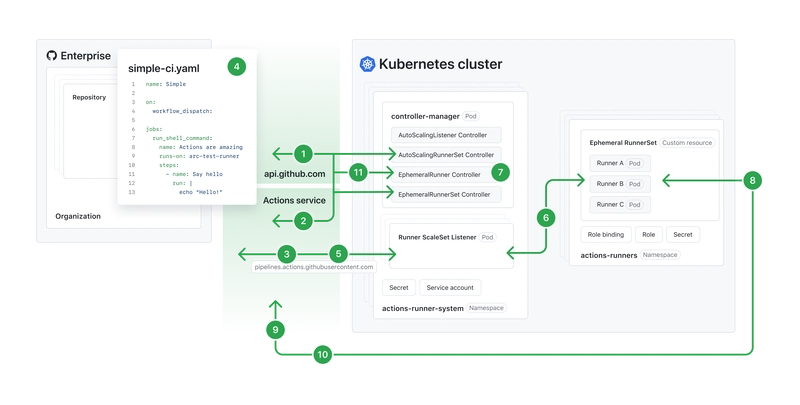How to Prepare for Your Next Cybersecurity Audit
In today’s hyper-connected business world, cybersecurity audits are not just a regulatory requirement but a vital component of organizational risk management and digital trust. The frequency and sophistication of cyber threats are rising, as are customers’, partners’, and regulators’ expectations. Many organizations, however, still treat audits as last-minute hurdles, leading to unnecessary stress, missed vulnerabilities, […] The post How to Prepare for Your Next Cybersecurity Audit appeared first on Cyber Security News.

In today’s hyper-connected business world, cybersecurity audits are not just a regulatory requirement but a vital component of organizational risk management and digital trust.
The frequency and sophistication of cyber threats are rising, as are customers’, partners’, and regulators’ expectations.
Many organizations, however, still treat audits as last-minute hurdles, leading to unnecessary stress, missed vulnerabilities, and potential penalties.
As a leader, your approach to audit preparation can set the standard for your entire organization, turning what could be a daunting process into an opportunity for growth, resilience, and competitive advantage.
The Strategic Role of Cybersecurity Audits
Cybersecurity audits comprehensively evaluate your organization’s information security policies, controls, and practices. Unlike routine security checks, audits provide an independent and systematic review of how your organization manages digital risks.
They assess your readiness to defend against threats, adherence to industry standards, and compliance with regulations.
Audits offer leadership a rare chance to gain a holistic understanding of their security posture. They highlight technical vulnerabilities and gaps in processes, training, and governance.
Rather than viewing audits as a necessary evil, forward-thinking leaders recognize them as a third line of defense, ensuring that security investments are effective and aligned with business goals.
This mindset shift can foster a culture of accountability and continuous improvement, making audits a catalyst for organizational advancement.
Adequate audit preparation is a team effort, but it starts with leadership. Here are five key steps to ensure your organization is ready:
- Clarify your compliance obligations: Identify which frameworks and regulations (such as ISO 27001, NIST, or PCI DSS) apply to your business. Map your existing controls to these requirements to avoid gaps or redundancies.
- Conduct internal pre-audits: Regularly perform self-assessments and mock audits to uncover weaknesses before external auditors do. This proactive approach allows you to fix issues early.
- Build a cross-functional audit team: Involve IT, cybersecurity, compliance, legal, and business unit leaders. Assign clear roles and responsibilities to streamline communication and accountability.
- Organize your documentation: Maintain up-to-date records of security policies, incident response plans, access logs, and training activities. Well-organized evidence speeds up the audit process and demonstrates maturity.
- Test your controls under actual conditions: Use penetration testing, simulated attacks, and tabletop exercises to validate that your security measures work as intended, not just on paper, but in practice.
By embedding these actions into your audit preparation routine, you reduce last-minute chaos and foster a proactive security culture across your organization.
Turning Audits into Strategic Wins
While passing a cybersecurity audit is essential, the real value lies in using the findings to drive meaningful change. Audits provide objective insights that internal teams may overlook, revealing technical and procedural weaknesses.
Leaders should treat audit results as a roadmap for future investment, prioritizing remediation efforts based on risk, rather than compliance alone. This approach ensures that resources are allocated to the most critical areas, improving security and operational efficiency.
A well-executed audit can also enhance your organization’s reputation. Demonstrating strong security practices builds trust with customers, partners, and regulators, and can even open doors to new business opportunities.
Moreover, by addressing audit findings promptly and transparently, you show a commitment to continuous improvement, an essential trait in today’s volatile threat landscape.
- Reputation and trust: Successfully navigating audits reassures stakeholders that you take security seriously, differentiating your organization in crowded markets.
- Operational resilience: Audit-driven improvements strengthen your ability to withstand and recover from cyber incidents, ensuring business continuity.
Ultimately, the most effective leaders view cybersecurity audits not as obstacles, but as opportunities to strengthen their organizations from the inside out.
By leading audit preparation with clarity, collaboration, and a focus on long-term improvement, you can transform compliance exercises into strategic wins, building a safer, more resilient, and more competitive business for the future.
Find this News Interesting! Follow us on Google News, LinkedIn, & X to Get Instant Updates!
The post How to Prepare for Your Next Cybersecurity Audit appeared first on Cyber Security News.










































































































































































![[The AI Show Episode 144]: ChatGPT’s New Memory, Shopify CEO’s Leaked “AI First” Memo, Google Cloud Next Releases, o3 and o4-mini Coming Soon & Llama 4’s Rocky Launch](https://www.marketingaiinstitute.com/hubfs/ep%20144%20cover.png)


















































































































![[DEALS] The All-in-One Microsoft Office Pro 2019 for Windows: Lifetime License + Windows 11 Pro Bundle (89% off) & Other Deals Up To 98% Off](https://www.javacodegeeks.com/wp-content/uploads/2012/12/jcg-logo.jpg)





































![Is this too much for a modular monolith system? [closed]](https://i.sstatic.net/pYL1nsfg.png)






















































































































_Andreas_Prott_Alamy.jpg?width=1280&auto=webp&quality=80&disable=upscale#)
































































































![What features do you get with Gemini Advanced? [April 2025]](https://i0.wp.com/9to5google.com/wp-content/uploads/sites/4/2024/02/gemini-advanced-cover.jpg?resize=1200%2C628&quality=82&strip=all&ssl=1)













![Apple Shares Official Trailer for 'Long Way Home' Starring Ewan McGregor and Charley Boorman [Video]](https://www.iclarified.com/images/news/97069/97069/97069-640.jpg)
![Apple Watch Series 10 Back On Sale for $299! [Lowest Price Ever]](https://www.iclarified.com/images/news/96657/96657/96657-640.jpg)
![EU Postpones Apple App Store Fines Amid Tariff Negotiations [Report]](https://www.iclarified.com/images/news/97068/97068/97068-640.jpg)
![Apple Slips to Fifth in China's Smartphone Market with 9% Decline [Report]](https://www.iclarified.com/images/news/97065/97065/97065-640.jpg)




































































































































